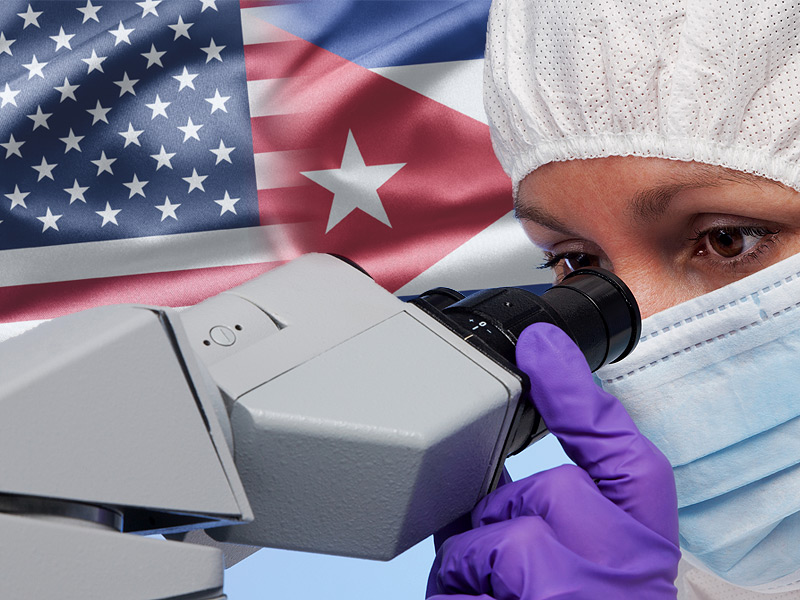
An embargo-free Cuba policy seems more and more possible
The embargo is a little like the 2016 election. Everybody wants to know, when will it be over?
Short answer is: Not yet, but the end is coming into view. Here’s one reason why.
For decades, the debate over U.S. policy toward Cuba stalled because the beneficiaries of ending the embargo were largely invisible, while its greatest defenders were visible, powerful, and determined not to lose. This imbalance made the prospects for change seem eternally grim.
As if led by the hidden hand of a community organizer, the beneficiaries of a more open, reciprocal relationship with Cuba have emerged these last eight years; starting with Cuban Americans who used their travel and remittance rights, expanded in 2009, to visit the island in droves, support their families, and seed the new businesses they started and help them grow.
Cuban Americans have since been joined by other beneficiaries of open travel and trade policies – the airlines, ferries, hotel managers, finance, and telecom firms, for example – with a deep stake in protecting the new policies and making them irreversible.
Since the White House issued its Presidential Policy Directive and additional regulatory changes a week ago, the list of increasingly visible, vested interests is growing in profoundly important and practical ways.
If you have cancer or diabetes, or know someone who does, your future health and well-being are affected by new Treasury rules that allow U.S. scientists “to freely collaborate with Cuban counterparts on everything from cancer therapies to combatting the Zika virus,” as Science Magazine reported.- many undergoing trials or available for use outside of the U.S. for the treatment of lung and gastric cancers, diabetic foot ulcers, and other serious conditions – could soon be within reach for American doctors and their patients.
Access to these treatments is likely to lower drug prices, as Modern Healthcare reports. The new policy, which gives pharmaceuticals developed in Cuba a clearer regulatory path to being imported and sold, “could bring [Cuba’s] cheaper, reputable medicines to the U.S. if they’re approved by the Food and Drug Administration.”
Beyond health care, the new policies will create opportunities for U.S. businesses in Cuba that will yield profits and jobs here at home. As trade analysts have observed:
- The new rules allow U.S. construction companies and contractors to build and repair infrastructure systems in Cuba including public transportation, water and waste management, electricity generation and distribution, hospitals, as well as public housing and schools.
- They authorize the export of consumer goods including goods sold online, which will boost the development and growth of e-commerce in Cuba, allow U.S. companies in e-commerce to expand their consumer base, and further drive accessibility of the internet in Cuba.
- They also empower “U.S. companies to develop, negotiate, and finalize business opportunities in Cuba for goods, services, or a combination of both,” and sign contracts contingent on getting regulatory approval. Prior to last week, companies had to seek regulatory approval first, which often scotched their chances to do any business in Cuba at all.
As the trade experts commented, “This is a big deal.”
Crowding the stage further with Cuba policy reform beneficiaries, we could mention passengers seeking seats with the airlines who are now selling one-way flights to Cuba for as little as $54, or the writers at Travel Weekly, who worried about protecting their sector’s gains under the banner headline “Trump’s Cuba policy could prove a setback for travel industry.”
Finally, there are pro-policy reform candidates running for office in Florida whose campaigns are now buoyed by thousands of Cuban Americans from both political parties who want the trade and travel bans to end. This week, for example, the Miami Herald endorsed Rep. Patrick Murphy (FL-18) in his run against the incumbent Senator Marco Rubio in part because “He supports the diplomatic opening to Cuba.” In addition, “(t)he Latin Builders Association, a prominent Miami industry group founded by Cuban exiles, recently endorsed Mrs. Clinton, the first time in its 45-year history it has supported a Democratic presidential nominee,” as the Wall Street Journal reported. This is in Florida, the ground zero of strident anti-embargo activity.
Peter Kornbluh, writing for The Nation, posed the question begged by the Obama diplomatic breakthrough of 2014 this way: “Could political, commercial, and cultural bridges between the United States and Cuba be constructed-and firmly reinforced-so that the process of normalization could withstand current and future enemies of reconciliation?”
The answer is yes, as the President’s reforms – surely irreversible – have shifted power from the embargo’s most strident supporters to the emerging beneficiaries of openness with Cuba.
No, the embargo isn’t over. But the process for ending it is firmly underway – thanks, in large part, to President Obama’s organizing vision that changed the political economy around this issue, which had stalled progress far too long.
(From Cuba Central)

